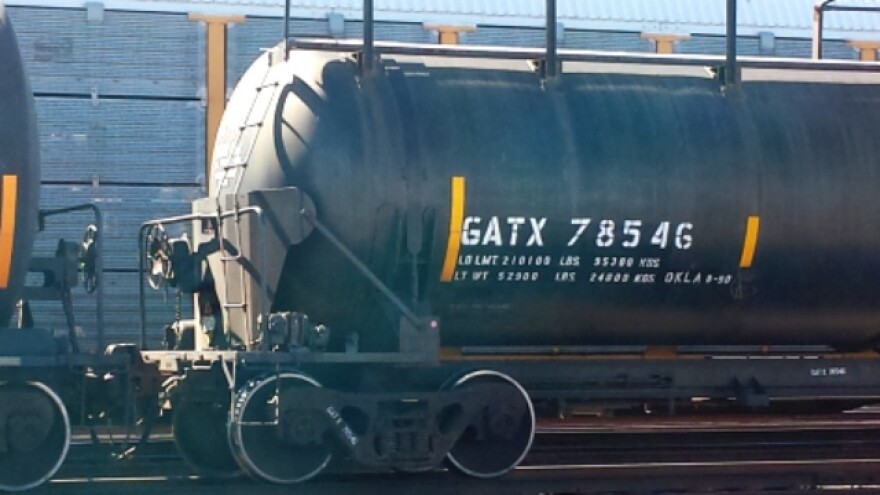The Washington Department of Ecology has completed a draft report to the legislature outlining safety recommendations to deal with increased oil train traffic in the state. The ecology department worked with the Utilities and Transportation Commission and the state’s Emergency Management Division to prepare the draft report on improving public safety.
Lisa Copeland is a spokesperson for ecology.
Copeland: "The dynamic of oil trains is completely new. We didn’t even have oil trains going through Washington state until 2012. So that’s a new issue, and there’s also the type of oil that is coming in that is new to us.”
Currently 1,600 individual oil train cars pass through Spokane per week. That oil is Bakken crude from fields in North Dakota. It is more corrosive and flammable than previous oil shipped by rail. Concerns have been raised after other deadly rail car derailments and explosions in other parts of the country.
The draft report contains 40 recommendations for protecting people and the environment. Copeland says the first round of recommendations include items that can be put in place in the state fairly quickly.
Copeland: “One of the things is equipment caches where you would have different trailers and equipment all around the state in the even there is an oil spill.”
Another recommendation is to change some legal definitions, like the word facility could be extended to rail cars, so they state would have more regulatory authority over the cars.
A final report will be given to the legislature in March for lawmakers to discuss ways to implement some changes. Federal transportation law preempts states from passing state rail safety regulations. That authority is granted to the Federal Railroad Administration. The US Department of Transportation is working on rule-making to address the problem of older tank cars that are less capable of handling the more corrosive Bakken crude.




